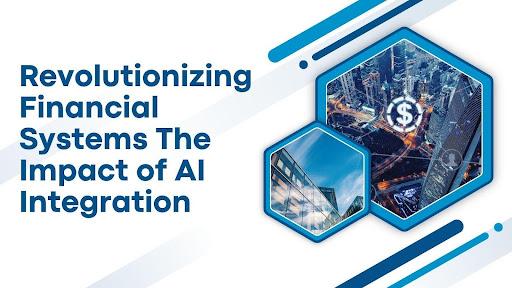In this modern era, the world of finance is undergoing a paradigm shift driven by artificial intelligence (AI). With rapid technological advancements, AI is becoming an essential tool for optimizing financial operations. In a recent analysis by Amrita Chatterjee, a leading researcher in technology-driven financial solutions, the transformative role of AI in financial systems is explored in depth. This article delves into key innovations reshaping the industry, highlighting advancements in pricing models, risk assessment, and customer value optimization.
The AI Evolution in Financial Decision-Making
Financial institutions are rapidly adopting AI-powered solutions to enhance decision-making capabilities. AI-driven systems now facilitate predictive analytics, allowing firms to anticipate market shifts with greater precision. By integrating deep learning frameworks, financial organizations have reported a significant increase in pricing accuracy and efficiency. This evolution enables institutions to move beyond traditional statistical models, embracing real-time data-driven strategies that enhance profitability and risk management.
Intelligent Pricing Systems: A Game Changer
One of the most significant breakthroughs in AI-powered finance is the development of intelligent pricing systems. These models leverage hybrid neural networks to assess market conditions, customer behavior, and risk factors simultaneously. Compared to conventional pricing methods, AI-driven systems have demonstrated remarkable improvements in reducing pricing anomalies and optimizing revenue streams. The ability to analyze vast datasets in milliseconds ensures more precise and responsive financial strategies.
Machine Learning in Fraud Detection
The application of machine learning in fraud detection is redefining financial security. AI-powered anomaly detection frameworks now identify fraudulent transactions with unprecedented accuracy. By analyzing communication patterns, transaction history, and network behaviors, AI algorithms can flag suspicious activities within seconds. This real-time risk assessment significantly reduces financial losses and enhances regulatory compliance. As fraudsters become more sophisticated, machine learning continues to evolve, ensuring robust protection against emerging threats.
Customer Lifetime Value Optimization
AI-driven customer analytics are revolutionizing financial services by improving lifetime value calculations. Traditional methods relied on static historical data, but modern AI models integrate real-time behavioral patterns to predict future customer engagement. This shift enables financial institutions to personalize services, increase customer retention, and optimize cross-selling opportunities. By leveraging AI for customer segmentation, businesses achieve more targeted marketing strategies, leading to higher conversion rates and improved overall customer satisfaction.
System Integration and Performance Enhancement
The integration of AI into financial systems presents both challenges and opportunities. Advanced data pipeline architectures are now designed to handle massive volumes of transactions efficiently. Institutions adopting cloud-native and microservices-based frameworks have achieved significant gains in processing speed and system uptime. Additionally, AI-driven security protocols strengthen financial platforms, reducing vulnerability to cyber threats while maintaining seamless user experiences.
The Future of AI in Financial Services
The trajectory of AI in financial services suggests continued innovation and growth. With increasing investments in AI-driven compliance systems, financial institutions are streamlining regulatory processes while minimizing risks. Automated compliance frameworks now adapt to new regulations within hours, drastically reducing operational burdens. Moreover, the integration of quantum computing in financial AI solutions is set to enhance computational power, leading to even more sophisticated data analysis capabilities. AI is expected to drive automation in financial decision-making, improving efficiency and reducing manual interventions.
In conclusion, the financial industry stands at the forefront of technological transformation, with AI reshaping key operational aspects. As outlined in Amrita Chatterjee‘s research, the adoption of intelligent systems is not just a competitive advantage but a necessity for future success. With continuous advancements in AI-driven pricing, fraud detection, and customer analytics, financial institutions are poised to offer more efficient, secure, and personalized services than ever before. The convergence of AI with emerging technologies will continue to shape the future of financial systems, unlocking unprecedented opportunities for efficiency and growth.







